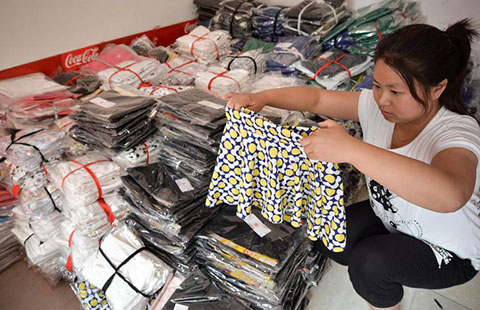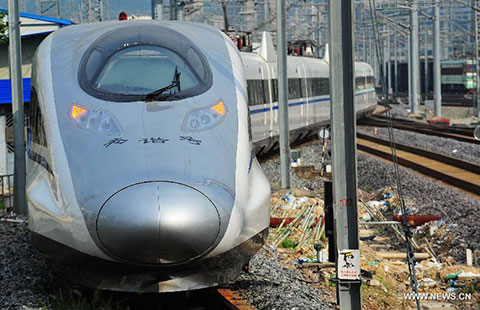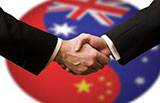Olive oil importers eye Eastern market
By Zhou Siyu (China Daily) Updated: 2012-06-04 09:47
A common problem with a big pie is where to take the first bite. Dani Jimenez, chief executive officer of Qualia Products Shanghai Co, the Spanish olive oil company's China division, was looking for ways to tap into the country's huge market.
Jimenez arrived in China six months ago and set up the China division in Shanghai, which is the first overseas office for the company. Small though it is (with annual sales of about $5 million), the company is targeting the high-end market.
Jimenez intended to sell his oil to fancy restaurants and in luxury shopping malls in China, and "not in the supermarkets", he stressed, because its top quality will require a price higher than the market average.
But it may well take some time before the Chinese people start regarding olive oil as something both familiar and luxurious, just as they did with good wine and perfume. And Jimenez knows that. "I believe the Chinese people will learn to use olive oil and get used to our products," he said.
Chinese customs data seemed to bear out this optimism. In 2011, olive oil imports to China reached 32,000 tons, with an annual year-on-year increase exceeding 60 percent over the past 12 years, according to the data
The country is expected to become a major olive oil consumer by 2015, when its annual imports are estimated to jump to 160,000 tons, or 5.3 percent of the world's total production, industry reports showed.
China's annual domestic olive oil production volume stood at less than 100,000 tons in recent years. But because of a lack of advanced technology in olive cultivation and processing, it is of a lower quality than imported products, industry analysts said.
"The imported olive oil was well recognized by Chinese customers, especially in big, wealthy cities. Its sales in China are expected to continue rising in the future," said Ma Wenfeng, a senior analyst at Beijing Orient Agribusiness Consultant Ltd, one of the largest consultancies in the industry.
Good market acceptance has paved the way for companies from other southern European countries to come to the burgeoning market, which became all the more attractive as the debt crisis in Europe and weak economic recovery in the United States tightened people's purse strings.
On his first business trip to China, Nikos Tomadakis, at the sales department of the Greek company Iason Foods, said the company (with products ranging from oil to soaps) has a broad strategy for business expansion to other Asian markets, including Japan and South Korea - and China can serve as the start pointing.
"Japan is a mature market for olive products but we would like to start with China," he said.
Yet before deploying a comprehensive cross-border sales web, the multi-stratum market in China alone will require some thoroughness of approach. Imported olive oil has so far been mainly sold in large first-tier cities such as Beijing, Shanghai and Guangzhou. Potential buyers in some wealthy second-tier cities are still in need of access to these kind of products, which represents enormous business possibilities for companies. "We are looking for business partners, particularly in China's inland provinces," Tomadakis said.
China's ballooning appetite behind the emerging middle class has been detected by domestic trading companies with years of experience in the market. They have changed their business strategy accordingly.
"We used to export products made in China because of the low labor and material costs," said Chris Christopoulos, brand manager with Demi Trading Co, a Chinese company based in South China's Guangdong province.
The company started importing oil products into China two years ago and sales doubled over this period. "We have great confidence in China's market," he added.
zhousiyu@chinadaily.com.cn
- Drastic correction not good for market, says commission
- Homes on the wheels
- Startup rolls out smart air quality device in China to combat pollution
- JD Finance reports 700% surge in borrowing
- AIIB to establish right standards for multilateral development banks
- Commentary: A key step forward for AIIB
- RMB internationalization to rebalance global economy
- China mulls China-EU investment platform: Premier Li

















